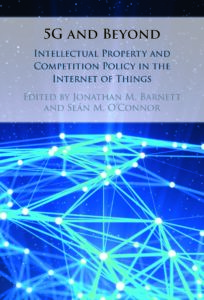
It was my pleasure to participate in a panel session on “SEP Current & Proposed Regulations” last month at the George Mason University Antonin Scalia Law School Center for Intellectual Property x Innovation Policy (C-IP2) Annual Fall Conference entitled “The Importance of Exclusive Rights.” Read more

 The Federal Circuit issued another important opinion yesterday affirming that software is a patentable invention in the United States. In
The Federal Circuit issued another important opinion yesterday affirming that software is a patentable invention in the United States. In  Earlier this month, CPIP Senior Scholar Adam Mossoff penned an
Earlier this month, CPIP Senior Scholar Adam Mossoff penned an  Following the Supreme Court’s four decisions on patent eligibility for inventions under
Following the Supreme Court’s four decisions on patent eligibility for inventions under  By
By  It’s been one year since the Supreme Court’s decision in Alice Corp. v. CLS Bank. On its face the
It’s been one year since the Supreme Court’s decision in Alice Corp. v. CLS Bank. On its face the